Posted on 7/31/2023
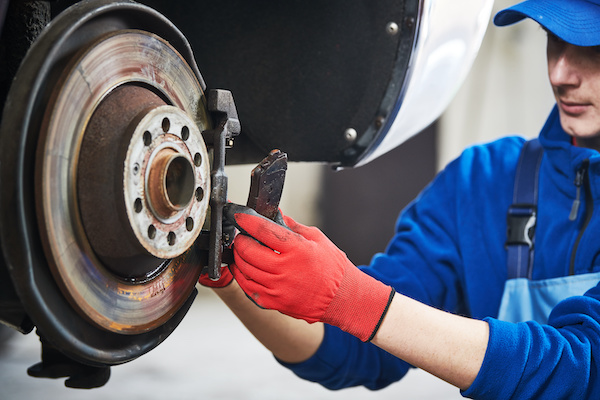
Having the right brakes for your vehicle can make all the difference when it comes to stopping safely. But do you know the difference between brake pads and brake shoes? Brake pads and brake shoes are two of the most common components in a car's braking system, but they require different types of maintenance. Keep reading to learn more about which one is best for your vehicle! The Difference Between Brake Pads and Brake Shoes Brake pads are designed to fit on the outer rim of your car's wheels. They are typically made of a durable rubber or composite material. When you press down on your brake pedal, the pads make contact with your vehicle's rotors, creating friction that helps stop it. Brake shoes, on the other hand, are designed to fit inside your car's wheels. They are usually made of metal and have a flat surface that makes contact with the wheel drum when you press down on the brake pedal. The friction created by this contact helps stop your vehicle. Which Is R ... read more
Posted on 6/30/2023

When it comes to road safety, being a defensive driver is essential. Whether you're a seasoned driver or just starting out, practicing defensive driving techniques can significantly reduce the risk of accidents and ensure your safety on the road. Here are some tips you can use to help you stay defensive and safe while driving. Stay Focused One of the fundamental principles of defensive driving is maintaining focus behind the wheel. Avoid distractions such as texting, eating, or adjusting the radio while driving. Keep your eyes on the road, anticipate potential hazards, and stay alert to react quickly to unexpected situations. Maintain Safe Distance Maintaining a safe following distance is crucial for preventing rear-end collisions. Leave enough space between your vehicle and the one ahead to allow for a safe stopping distance. This buffer will provide you with enough time to react if the car in front suddenly brakes. Use Mirrors and Check Blind Spots Regula ... read more
Posted on 5/31/2023
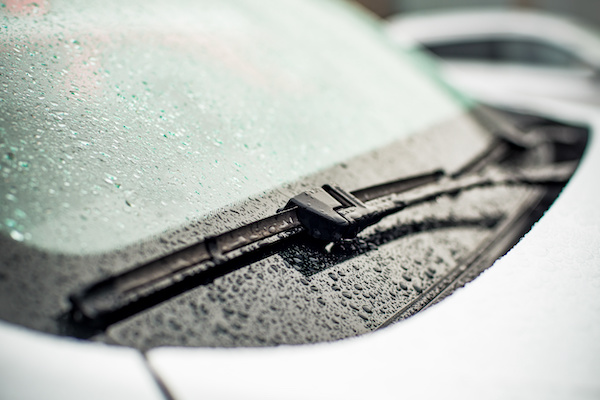
You're driving through Denton, TX, on a rainy day, and suddenly you realize that your windshield wiper blades are not effectively clearing the water from your windshield. Your visibility becomes compromised, making it challenging to navigate the road safely. It's a situation we've all experienced at some point, and it highlights the importance of having a good pair of windshield wiper blades. Windshield wiper blades are crucial in ensuring clear visibility during adverse weather conditions. These blades can deteriorate rather quickly due to exposure to sunlight, extreme temperatures, and wear from regular use. As a responsible driver, you should know when to replace them. While there is no fixed timeframe for when to replace your windshield wiper blades, there are several signs that indicate it's time for a replacement: Streaking Skipping or Chattering Split or Cracked Rubber Inefficient Cleaning Age (Over a year old) Regularly inspecting your windshield wiper b ... read more
Posted on 4/30/2023
.jpeg)
The electrical system in your car is responsible for powering various components, such as the lights, radio, and air conditioning. When this system malfunctions, it can lead to a range of problems that can impact your vehicle's performance and safety. In this article, we will discuss the most common car electrical system problems. Dead Battery A dead battery is one of the most common car electrical system problems. This can be caused by a range of factors, including a faulty alternator, corroded battery terminals, or simply an old battery. If you notice that your vehicle is struggling to start, it may be due to a dead battery. Faulty Alternator The alternator is in charge of recharging the battery in your vehicle while the engine is running. A faulty alternator can lead to a dead battery or cause the car's electrical components to malfunction. Signs of a faulty alternator include dimming lights, a battery warning light on the dashboard, and s ... read more
Posted on 3/17/2023

March 23rd is National Puppy Day, and what better way to celebrate than to take your furry friend on a road trip? Whether you're taking your pup on a day trip or a longer journey, it's crucial to be prepared and ensure their safety and comfort. Here are some tips for road traveling with pups: Safety Comes First The safety of your pup is paramount when traveling by car. Your dog should be properly secured with a harness, crate, or carrier. Never let your dog sit in the front seat; they can be seriously injured if an airbag deploys. Also, never leave your pup alone in the car, as temperatures can become dangerous, even on mild days. Plan Your Route Before you hit the road, plan your route and make sure there are pet-friendly rest stops along the way. Your canine will need to take breaks to stretch their legs, go potty, and get some fresh air. Bring your pup plenty of water and food, and keep their feeding schedule consistent with their regular routine. Pack for Your Doggy P ... read more
Posted on 2/28/2023
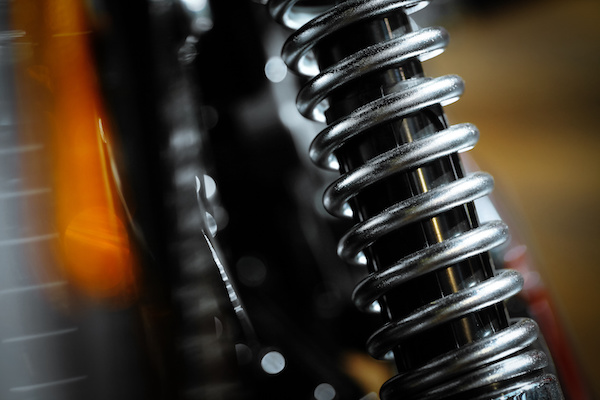
The suspension system of a vehicle is an essential component that plays a crucial role in ensuring a smooth and comfortable ride. The suspension system is responsible for absorbing the bumps and vibrations on the road, and providing stability to the vehicle. It is comprised of several parts that work together to provide a comfortable ride and maintain control over the car. Here are some of the most essential components that make up the suspension system: Springs Springs are the primary component that absorbs shocks from the road. They are typically made from metal or plastic and are designed to compress and expand as the car passes over rough terrain. The spring rate is a measure of how much force is required to compress the spring, and it determines the firmness of the ride. Shock Absorbers/Shocks Shocks are hydraulic dampers that are designed to control the movement of the springs. They work by converting the kinetic energy from the spring into heat, which ... read more
Posted on 1/29/2023
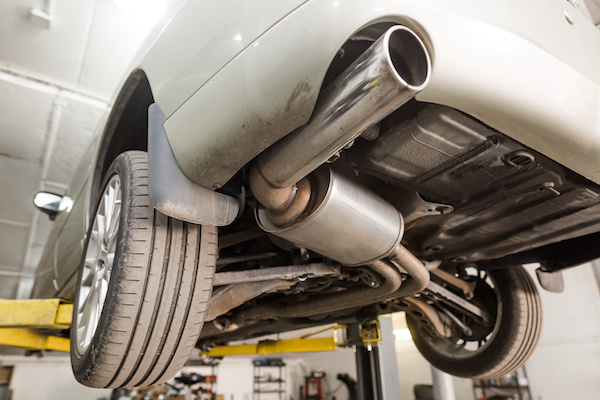
If your exhaust is roaring and belching every time you drive, there’s a good chance that your muffler is the problem. A loud muffler should not be left unattended. Please visit Strande’s Garage for an inspection of the exhaust system. Our technicians can point out the damage and get you the necessary repairs. A loud exhaust can be caused by different things. One of the most common culprits is a hole. Since most of the exhaust system is made of metallic pipes under your vehicle, it is susceptible to carrying excess moisture. This will eventually lead to rust and holes. However, external damage is not always the case. The inside of your vehicle’s muffler can be damaged too. The baffles inside can cause a rattling sound. Exhaust leaks are more common in older vehicles, with over 100,000 miles. To avoid the noisy nuisance, we recommend having your exhaust system inspected regularly. At Strande’s Garage, we can inspect the following components: Manif ... read more
Posted on 12/30/2022

Winter is here, and it's time to take care of your car. Winter weather isn't kind to vehicles, especially if you don't do the right maintenance before it begins. You can do many things to ensure your vehicle is ready for cold weather driving. Here are some common winter maintenance checks every driver should do before they hit the road this season. Check the Tire Pressure and Tread As a general rule, you should check your tires and the tread depth at least once a month. Check for uneven wear on the tires. Contact an auto repair shop if there is any bulging or if you see signs of damage (cuts or cracks). Check Your Battery Your car's battery is one of the most important components in your vehicle because it provides the power you need to start your engine. However, cold weather can stress a battery and cause it to fail. The first sign that something is wrong with your car's battery maybe when you turn on your headlights, and they do not come on. If this happens ... read more
Posted on 11/10/2022
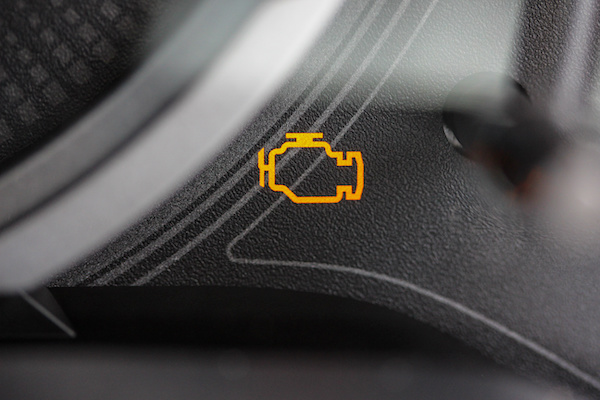
What Should I Do If My Check Engine Light Is Flashing? The check engine light only comes on when a problem has been detected in your car. While a steady check engine light doesn’t require immediate attention, a blinking or flashing one does need help. It means that your engine is misfiring or worse. An engine misfire occurs when the combustion process is not finished or executed correctly, usually due to spark plug problems, an unbalanced air-to-fuel ratio, or loss in compression. As a result, there is a high risk of unburned fuel passing through the exhaust system. Consequently, your engine will run rough, stall out, or not be able to start up at all. You shouldn’t drive with a flashing check engine light until you find the exact cause. Otherwise, you may be operating your car with a faulty catalytic converter which can lead to expensive repairs. To pinpoint the problem, you or a professional technician must use a scan tool to locate the issue. A trouble code will be s ... read more
Posted on 10/27/2022

Sometimes you may hear your car speaking in its own language in sounds such as squeals, bangs, and squeaks and not understand what the vehicle is trying to communicate. Other times you may not even hear the noises or rather hear them and assume it's an ordinary thing. With limited or no car knowledge, it may be difficult to comprehend your car's problems from the sound it produces. Read on to identify common sounds that indicate trouble in your car. Rattling Noises When Driving Over Bumps When you drive over speed bumps or a pothole and hear rattling, vibrating, or squeaking sounds then it may imply your car's bushings, sway bar link, and ball joints are defective. Also, the struts and shocks may be worn out. Squeaking When Turning The Steering Wheel Have you experienced annoying squeaking sounds when making turns with your car? The probable cause could be low fluid levels in the power steering system or a failed steering wheel pump. Low Droning Noises Sometimes you ... read more